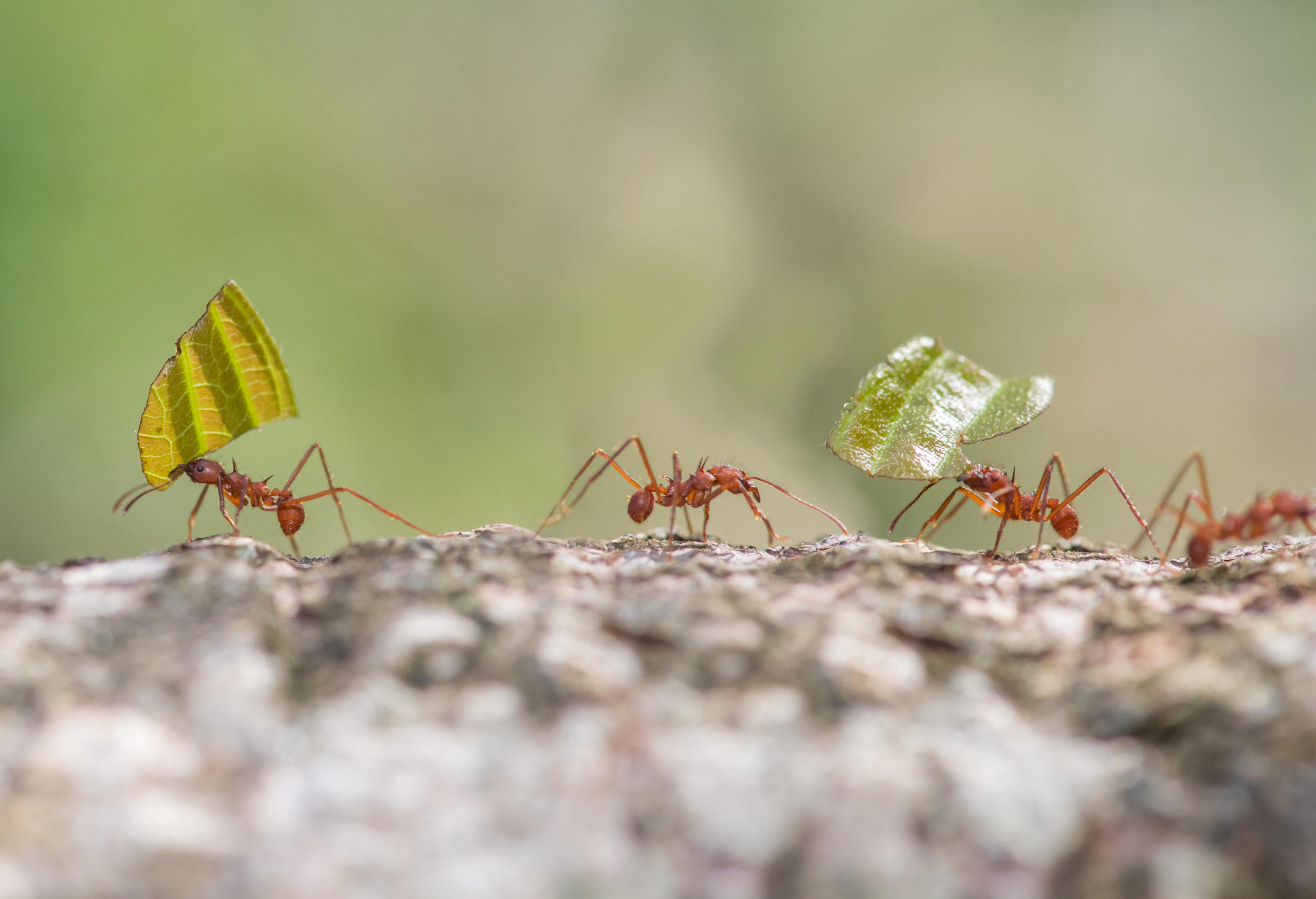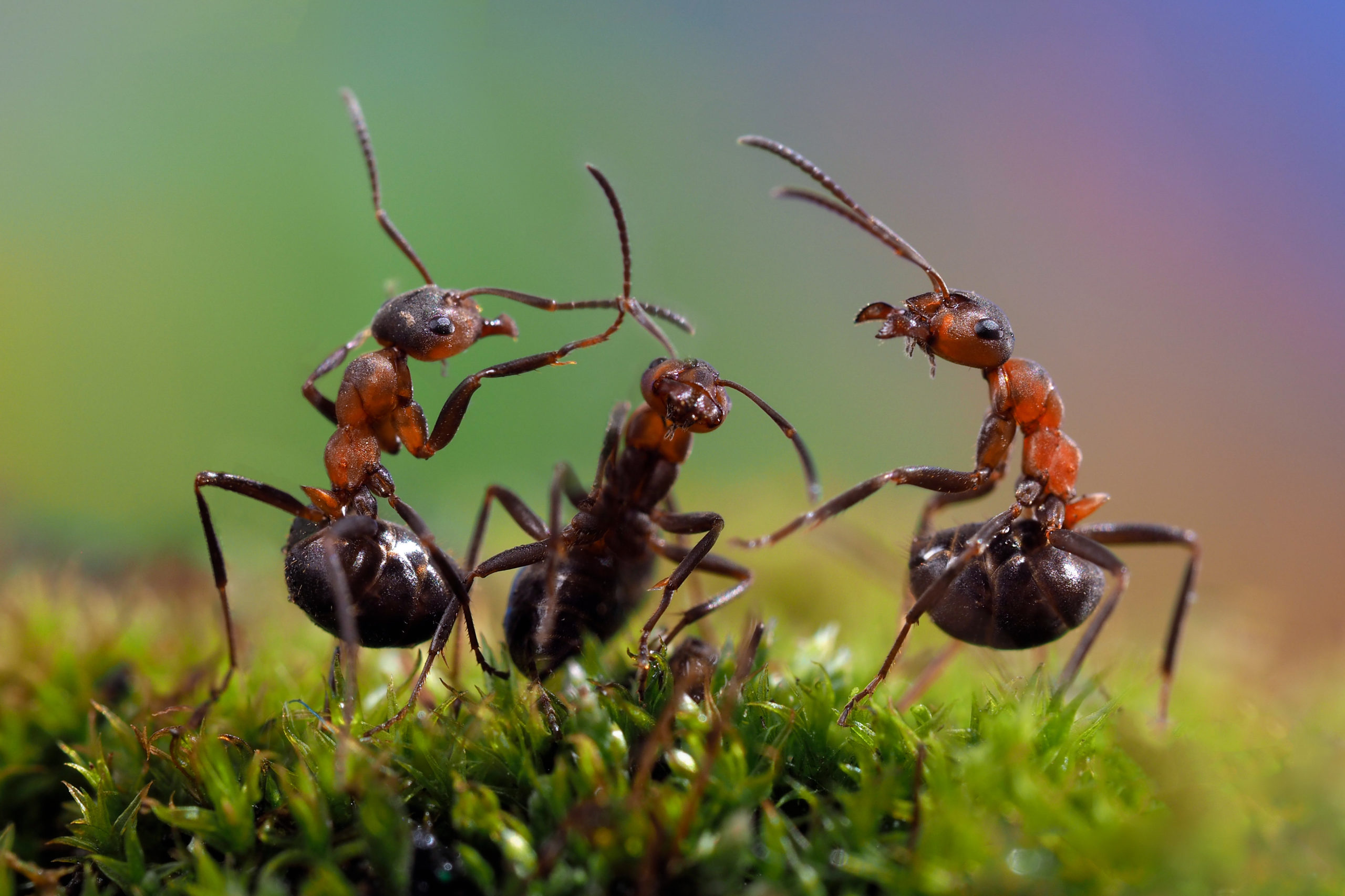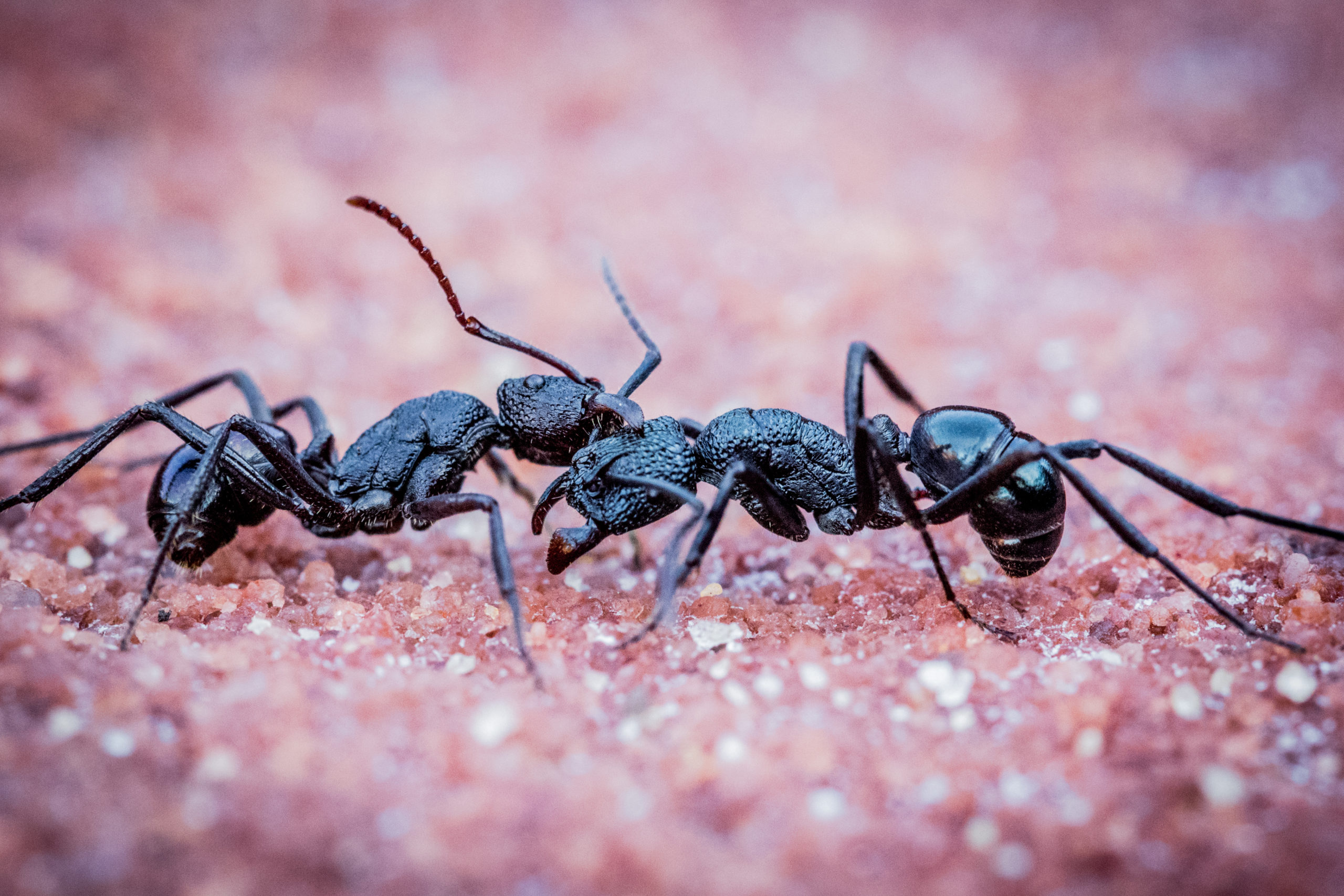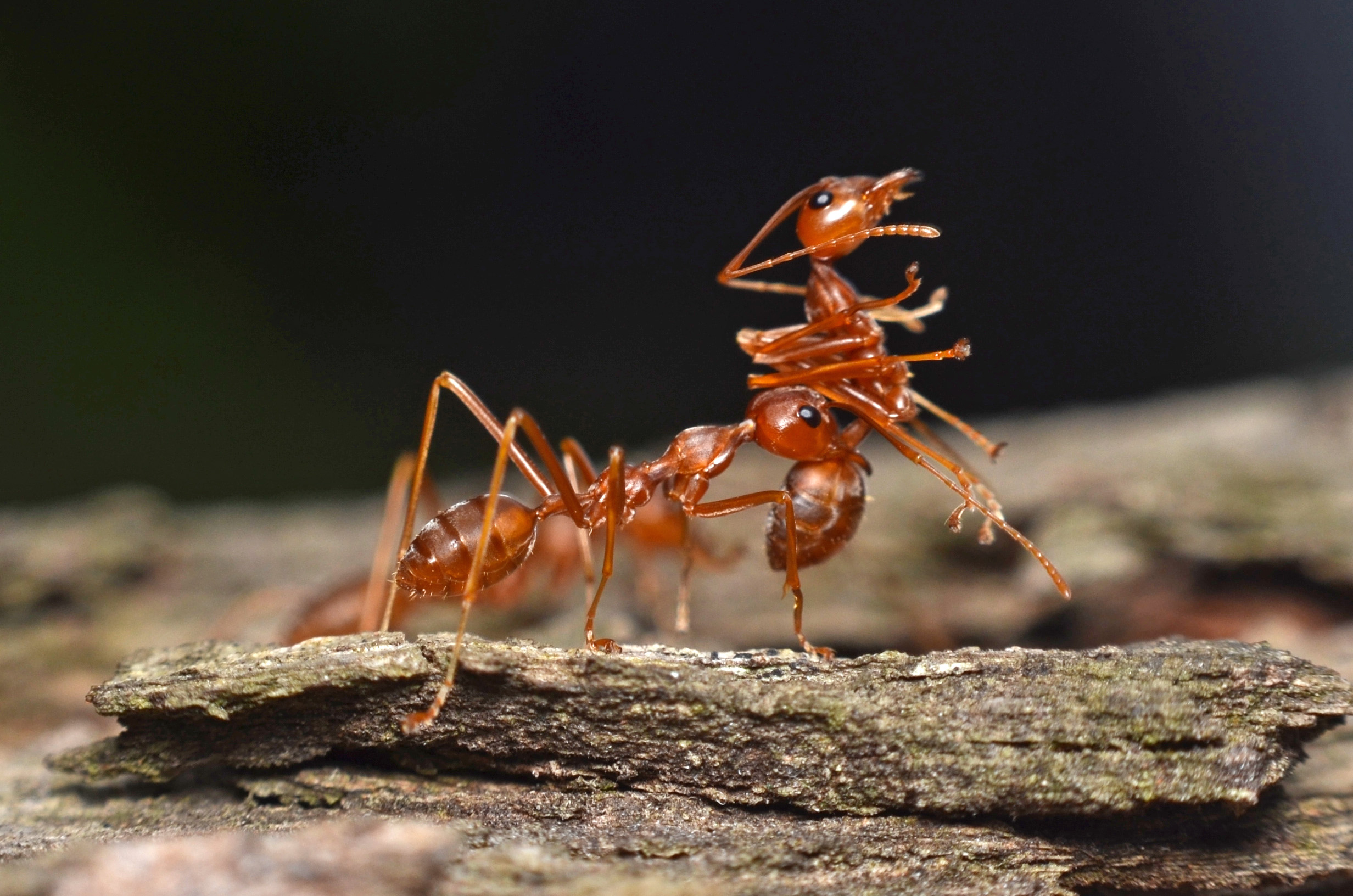Are Ants Intelligent?
Are Ants Intelligent?
Cognitive Thoughts and Insects
For a long time, it was believed that insects operated in a sort of “auto-pilot” fashion in which their actions were theorized to be merely collections of reflexes based on external stimuli. However, upon the exploration of philosopher Colin Klein and his entomologist colleague Andrew Barron both of Macquarie University, this previous viewpoint was challenged with a specific focus on whether or not insects have a sense of consciousness. Human consciousness and the sense of ‘self’ has been determined to originate either from our complex neocortices or our midbrain structure. The midbrain helps us to rapidly organize sensory data in order to have an understanding of our location in any given space – in short, it helps us to navigate our world rooted within a first-person point of view. Based on the very basic ability of insects to also navigate through spaces and obstacles, it is reasonable to assume that it is coming from a similar midbrain-like structure. If that is true, and consciousness indeed derives from such a structure, Klein and Barron suggest that it could also be true that insects have a very basic form of self-awareness. This isn’t to say that insects have any deep understanding of “self” or any deep consideration, rather they have “the most basic aspect of consciousness: subjective experience,” Klein and Barron write in their published study. What this means is that insects are sensing and reacting to their environments from the first-person perspective. This incredible discovery has led to further exploration into the intelligence of insects. In one study, wasps, who are somewhat closely related to ants as members of the Hymenoptera order, were put through a series of tests to determine if they possess a certain form of logic known as ‘transitive inference.’ Transitive inference, as defined by the Oxford Handbook of Comparative Cognition, is “a form of deductive reasoning that allows one to derive a relation between items that have not been explicitly compared before.” Incredibly, following a series of tests it was determined that wasps were able to organize hierarchies within their mind and react to them based on these hierarchies, proving they are capable of transitive inference. Being closely related to wasps, its not surprising to find that they have equally impressive cognitive abilities for insects. In fact, ants are considered one of the most intelligent species of insects to date. 
Ants Operating Within Complex Societies
Ants are extremely unique and fascinating creatures. They operate within vast populations and strategically work as a unit for the best interests of their colony. They manage to collaborate with all their colony members to build intricate ant hills that they keep well sustained with food, water, etc. Not only are ants able to operate within massive populations, but they also manage to organize themselves in a way to avoid one of the most common annoyances of the developed human world: traffic. When examined, ants can be seen forming lanes as they move about, adjusting their movements accordingly to continue the flow of movement and avoid traffic jams. While some ants are heading back to the colony with food and provisions, others are heading out to forage. Those that are homeward bound are often carrying loads, making it more difficult to maneuver. As such, if two ants are headed for collision, the one not burdened with items veers left or right, allowing the returning ant to take the center lane of traffic. This happens on repeat, forming a dedicated center lane of returning ants and typically two bordering lanes of ants leaving. As a whole, these ants manage to form three lanes of organized traffic contributing to the flow of a remarkable mass pattern within their colony. 
Ant Communication
Ants manage to communicate a significant amount of information with their colony members. A myrmecologist (an entomologist who specializes in the study of ants) by the name of Rainer Rosengren studied the phenomenon in which ants appeared to follow the same pathways and react to things that previous generations had, but that they had not yet learned through experience themselves. Upon investigation, Rosengren found that the ants appeared to undergo a training session following the winter months. After emerging from their winter-time shelter, newborn foraging ants would follow “elder” ants that were alive the previous warm seasons as they traveled their old trails in search for materials and food. When the elder ants soon passed, the new foragers adopted these trails and other habits of the old ants, essentially passing down the learned lessons of generations. 
The Art of Ant War
Being social, colony-based insects, ants can be rather territorial, and conflict can strike when they come across other colonies or insects that threaten their society or resources. These conflicts can often closely mirror human warfare. Although not all types of ants will engage in full on attacks or even engage with adversaries at all, instead opting to retreat to avoid conflict, when ant populations are strong enough in number and they can become more intense. One of the leading theories behind why ants engage in this kind of aggression is rooted in the division of labor due to population size of colonies. The productivity of largely populated groups allows for “reserve labor forces,” which can easily be converted into a type of military and, where ants are concerned, these reserve military ants are even called ‘soldiers.’ 
Ants Practice Healthcare
In the aftermath of a vicious encounter with their foes, some species of ants will attend to their injured, like medics on a battlefield. badly injured ants secrete a specific kind of pheromone that alerts their fellow colony members that they need help. When help arrives, the assisting ants quickly determine whether the injured ant is treatable, or too badly wounded to be able to help. Those that are treatable are carried back to the colony where they remain relatively still as their colony members get to work on their open wounds. These rescuer ants use their mouths to “lick” the wound in a way, cleaning the area and treating it for a matter of minutes. Scientists found that injured ants that did not receive this treatment from their colony members had an 80% chance of succumbing to their wounds within a few hours whereas those who were treated only have a 10% chance of passing away from their injuries. In addition to healing wounds, ants are concerned with cleanliness and the spread of diseases. One of the best examples of their cleanliness is the fact that ants have “bathrooms” within their colonies. This isn’t to say that these insects have constructed porcelain thrones, rather, within their colonies, these ants have created designated areas to relieve themselves. This interesting behavior was studied by a team of scientists that discovered these “well-defined fecal patches.” What was even more amazing was the fact that these areas were not waste dump areas in general, rather, they were clearly a designated ant restroom. Due to their close proximity with other members of their colony, ants are also at risk of contracting and spreading contagions throughout their population. In response to this, during outbreaks in their colonies, ants practice social distancing to prevent spreading contagions. A study at the University of Lausanne in Switzerland released their findings regarding several tests on this phenomenon. In the study, the researchers first established a control by monitoring the ants’ collective behaviors and movements for four days. On the fifth day, a fugus was introduced to a select collection of the colony’s forager ants. This fungus is common in the soil of gardens and is well known amongst entomologists to cause illness in ants. When these infected foraging ants were reintroduced to their colony, they made an active effort to distance themselves from the rest of the population while the healthy forager ants who had not been exposed to the fungi also increased their time spent in solitude away from the colony. Meanwhile the nurse ants, who take care of the young in a colony, moved the eggs and babies further into the depths of the colony’s maze – isolating themselves from exposure to any of the roaming forager ants. Furthermore, it was determined that ants infected with any kind of ailment, including injuries, would take time to rest and heal in the nest before returning to their normal duties. 
Difficult Infestations
While we can respect the fact that ants are incredible and intelligent creatures, it still does not make them any more welcome in our homes. In fact, their heightened intelligence can make them increasingly persistent pests that are frustratingly difficult to treat. When you need to send them an eviction notice, you need ant control that’s equally persistent. Call us today for more information on how we can help you purge those powerful pests. 
Citations
Ant Information & Fun Facts About Ants (N/A) Myrmecology. Available at: http://www.myrmecology.org (Accessed: June 2020). Clark, L. (2015) Ants Have Designated Toilet Areas in Their Nests, Smithsonian Magazine. Smithsonian Institution. Available at: https://www.smithsonianmag.com/smart-news/ants-do-their-business-colony-shared-toilets-180954354/ (Accessed: February 5, 2021). Daley, J. (2016) Do Insects Have Consciousness and Ego?, Smithsonian Magazine. SmartNews. Available at: https://www.smithsonianmag.com/smart-news/do-insects-have-consciousness-ego-180958824/ (Accessed: October 2020). Gordon, D. (2018) Ant Colonies Retain Memories That Outlast the Lifespans of Individuals, Smithsonian Magazine. Available at: https://www.smithsonianmag.com/science-nature/ant-colonies-retain-memories-outlast-lifespans-individuals-180971022/ (Accessed: June 2020). Hanson, Ph. D., J. (2016) Why Don’t Ants Get Stuck in Traffic?, YouTube. It’s Okay to Be Smart – PBS Digital Studios. Available at: https://www.youtube.com/watch?v=kkiuw0HbRq4 (Accessed: December 2020). Katz, B. (2018) Ants Take Sick Days Too, Smithsonian Magazine. SmartNews. Available at: https://www.smithsonianmag.com/smart-news/ants-take-sick-days-too-180970881/ (Accessed: April 2020). Lazareva, O. (2012) Transitive Inference in Nonhuman Animals, Oxford Handbooks Online: Scholarly Research Reviews. The Oxford Handbook of Comparative Cognition. Available at: https://www.oxfordhandbooks.com/view/10.1093/oxfordhb/9780195392661.001.0001/oxfordhb-9780195392661-e-036 (Accessed: August 2020). Moffett, M. (2019) When It Comes to Waging War, Ants and Humans Have a Lot in Common, The Smithsonian Magazine. The Smithsonian Institution. Available at: https://www.smithsonianmag.com/science-nature/when-it-comes-waging-war-ants-humans-have-lot-common-180972169/ (Accessed: August 2020). Sawe, B. (2018) Do Ant’s Hibernate During the Winter?, WorldAtlas. Available at: https://www.worldatlas.com/articles/do-ants-hibernate-where-do-ants-go-in-winter.html (Accessed: June 2020). Solly, M. (2019) Wasps are the First Invertebrates to Pass This Basic Logic Test, The Smithsonian Magazine. The Smithsonian Institute. Available at: https://www.smithsonianmag.com/smart-news/wasps-are-first-invertebrates-pass-basic-logic-test-180972148/ (Accessed: August 2020). These Ant Paramedics Save Their Injured Comrades (2018) YouTube. SciShow. Available at: https://www.youtube.com/watch?v=Y_lf6NksxFl&list=PLB3FCEEAC84884760&index=225 (Accessed: May 2020). Tucker, A. (2016) Do Insects Have Consciousness?, The Smithsonian Magazine. The Smithsonian Institute. Available at: https://www.smithsonianmag.com/science-nature/do-insects-have-consciousness-180959484/ (Accessed: October 2020). Wu, K. (2018) Five Real Life Wasp Superpowers Not in Ant-Man and the Wasp, Smithsonian Magazine. The Smithsonian Institution. Available at: https://www.smithsonianmag.com/science-nature/why-you-should-let-wasp-be-your-hero-today-180969521/ (Accessed: July 2020).
Request a Free Quote Today
(We do not share your data with anybody, and only use it for its intended purpose)


